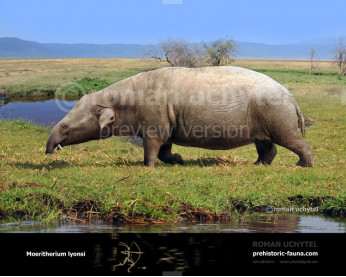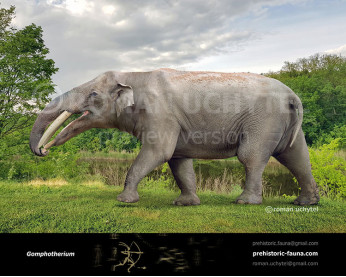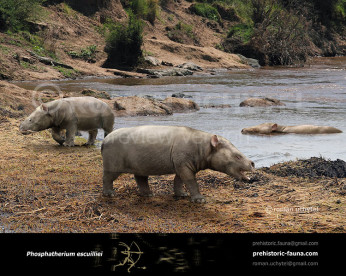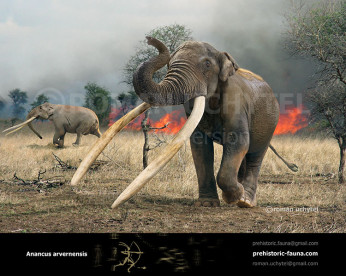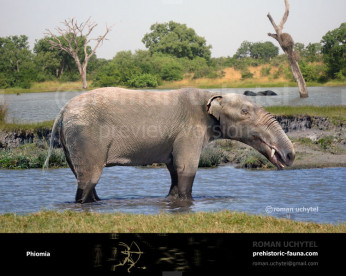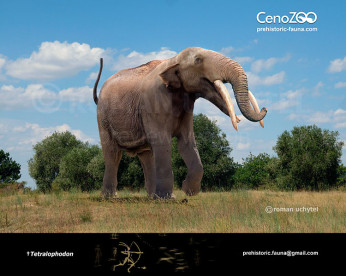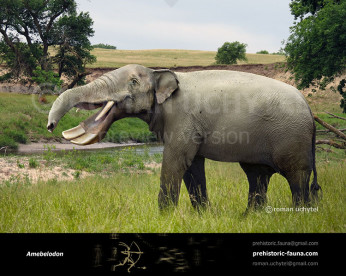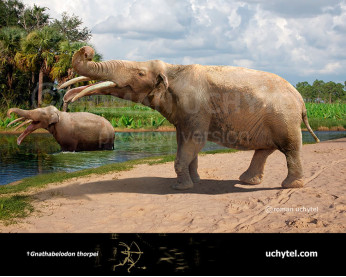Platybelodon
7272Platybelodon (Platybelodon Borissiak, 1928)
Order: Proboscidea
Family: Gomphotheriidae
Dimensions: length - 4,5 m, height - 2,2 m, weight - 1500- 2 500 kg
Expansion:during the Miocene Epoch, about 15-4 million years ago (Africa, Europe, Asia)
A typical representative: Platybelodon danovi Borissiak, 1928
Platybelodon was a genus of large herbivorous mammal related to the elephant (order Proboscidea). It lived during the Miocene Epoch, about 15-4 million years ago, and ranged over Africa, Europe, Asia. Although it thrived during its time, it did not survive past the Miocene. Platybelodon was previously believed to have fed in the swampy areas of grassy savannas, using its teeth to shovel up aquatic and semi-aquatic vegetation. However, wear patterns on the teeth suggest that it used its lower tusks to strip bark from trees, and may have used the sharp incisors that formed the edge of the "shovel" more like a modern-day scythe, grasping branches with its trunk and rubbing them against the lower teeth to cut it from a tree. Platybelodon was very similar to Amebelodon, another, closely related gomphothere genus. Due to the shape of the two lower teeth, which are worn by many gomphothere genera (such as Platybelodon, Archaeobelodon, and Amebelodon), they are popularly known as "shovel tuskers."
Platybelodon (Platybelodon Borissiak, 1928)
Order: Proboscidea
Family: Gomphotheriidae
Dimensions: length - 4,5 m, height - 2,2 m, weight - 1500- 2 500 kg
Expansion:during the Miocene Epoch, about 15-4 million years ago (Africa, Europe, Asia)
A typical representative: Platybelodon danovi Borissiak, 1928
Platybelodon was a genus of large herbivorous mammal related to the elephant (order Proboscidea). It lived during the Miocene Epoch, about 15-4 million years ago, and ranged over Africa, Europe, Asia. Although it thrived during its time, it did not survive past the Miocene. Platybelodon was previously believed to have fed in the swampy areas of grassy savannas, using its teeth to shovel up aquatic and semi-aquatic vegetation. However, wear patterns on the teeth suggest that it used its lower tusks to strip bark from trees, and may have used the sharp incisors that formed the edge of the "shovel" more like a modern-day scythe, grasping branches with its trunk and rubbing them against the lower teeth to cut it from a tree. Platybelodon was very similar to Amebelodon, another, closely related gomphothere genus. Due to the shape of the two lower teeth, which are worn by many gomphothere genera (such as Platybelodon, Archaeobelodon, and Amebelodon), they are popularly known as "shovel tuskers."

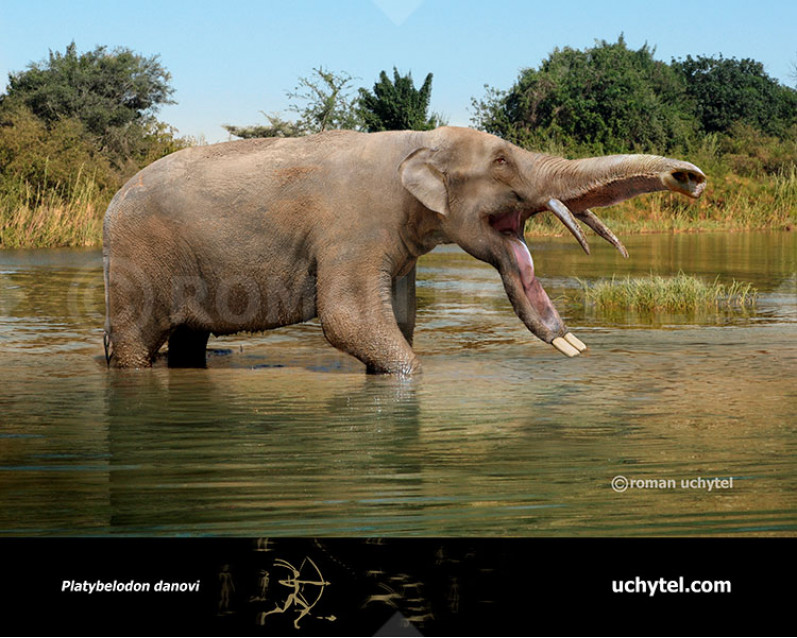
-797x638.jpg)
1-797x638.jpg)
12-797x638.jpg)
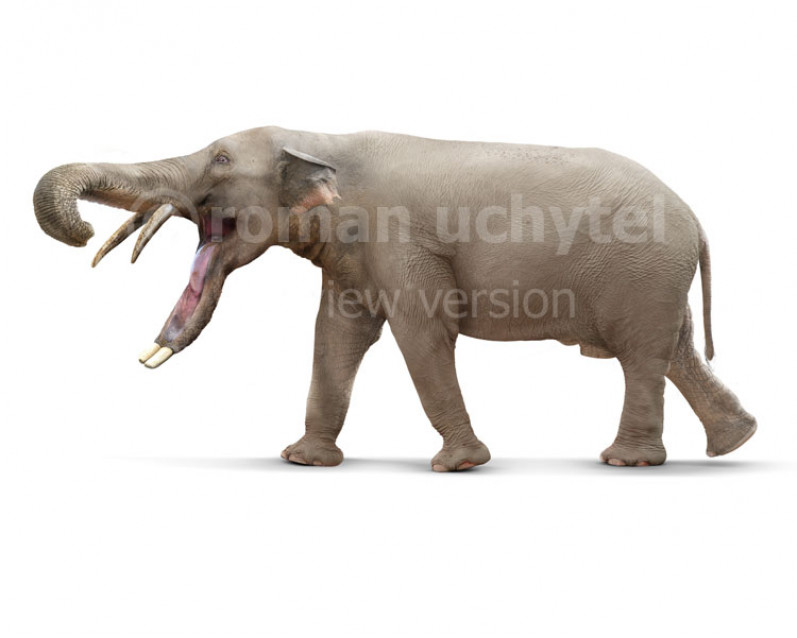
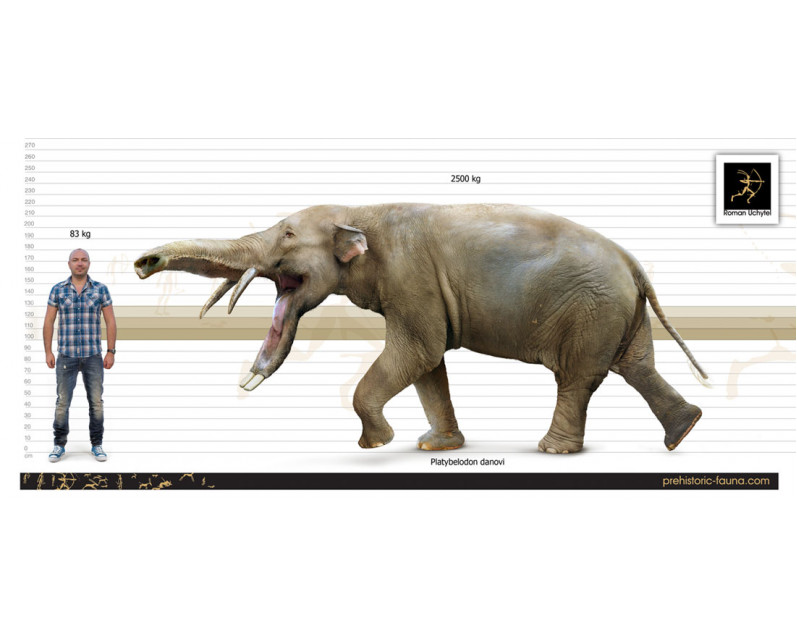

-70x56.jpg)
1-70x56.jpg)
12-70x56.jpg)


